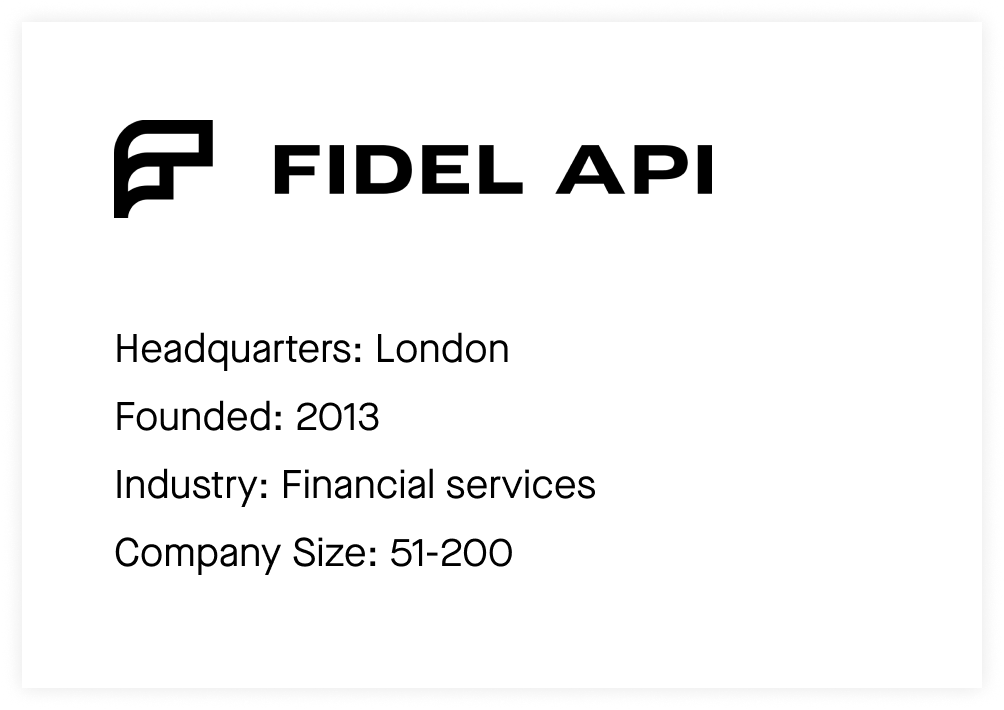Fidel API is a global financial infrastructure platform that enables developers to build programmable experiences at the moment a transaction occurs on any payment card.
Dan Plottner, Head of Global Sales at Fidel API, had used conversation intelligence (CI) tools at another company and found them helpful, especially in a remote world where most prospect interactions are on Zoom as opposed to in person. So he wanted to bring a tool like Clari Copilot to Fidel API when he joined the company.

According to Dan, being in multiple markets at the same time and being able to give feedback to both the SDR and the AE team asynchronously with Clari Copilot has been really helpful.
He says, “It doesn't matter what my schedule is. I can listen to a bunch of calls at 1.5x speed and provide actionable feedback to individuals. That is huge because it’s hard to get schedules across different time zones synced up.”
For the customer success team, Adam says that being able to record calls and add them to game tapes has been really helpful, especially for the earlier part of onboarding.
They’ve created a few different game tapes libraries. Content in one library relates to product-specific things like individual case studies. Another library contains general feedback about either their product or our service.

"If you're trying to get through the core of the use case or the product market fit, being able to scroll through the topics and jump to specific mentions like integration, timelines and pricing helps my team get up to speed quickly."
Adam Moreschi
Customer Success Manager at Fidel API
According to Adam, the deal handoff process from the sales team has become much more efficient because of Clari Copilot. Instead of going through all the calls with salespeople, the customer success team can just ask the rep to tag them on specific calls.
Another thing that has helped the team is the ability to watch the calls at faster speeds and jump around the transcripts.
To onboard people quickly, Dan created a program where reps can go in and watch product discovery and technical validation calls. He quickly noticed a difference between the sales people who were onboarded when Fidel didn't have Clari Copilot and those who were onboarded when they did. He mentioned that AE's who took their product certification test after reviewing calls in Clari Copilot consistently scored higher than those who didn't.
Dan: There can obviously be other factors involved here, but I definitely attribute a piece of the higher scores to being able to watch the actual ways that real customers are interacting and the kind of questions they're asking in the discovery process.
Adam: It's one thing to be able to get something in an email format but the ability to have a recorded call and send someone a snippet of that is really powerful. It's the next best thing to actually having someone in the room with you. And call recordings help other non-customer facing teams get customer feedback and understand their thought process.
Dan and Adam were familiar with Gong but recommend Clari Copilot over it since they feel the latter has a more attractive price point. They also admitted to being very impressed by the support that they’ve received from the team.
“Clari Copilot's service and support has definitely been a leg up in the sense of being available for training, being able to take feedback and incorporate it at a much faster pace than other organizations that I have seen in the competition,” signs off Adam.